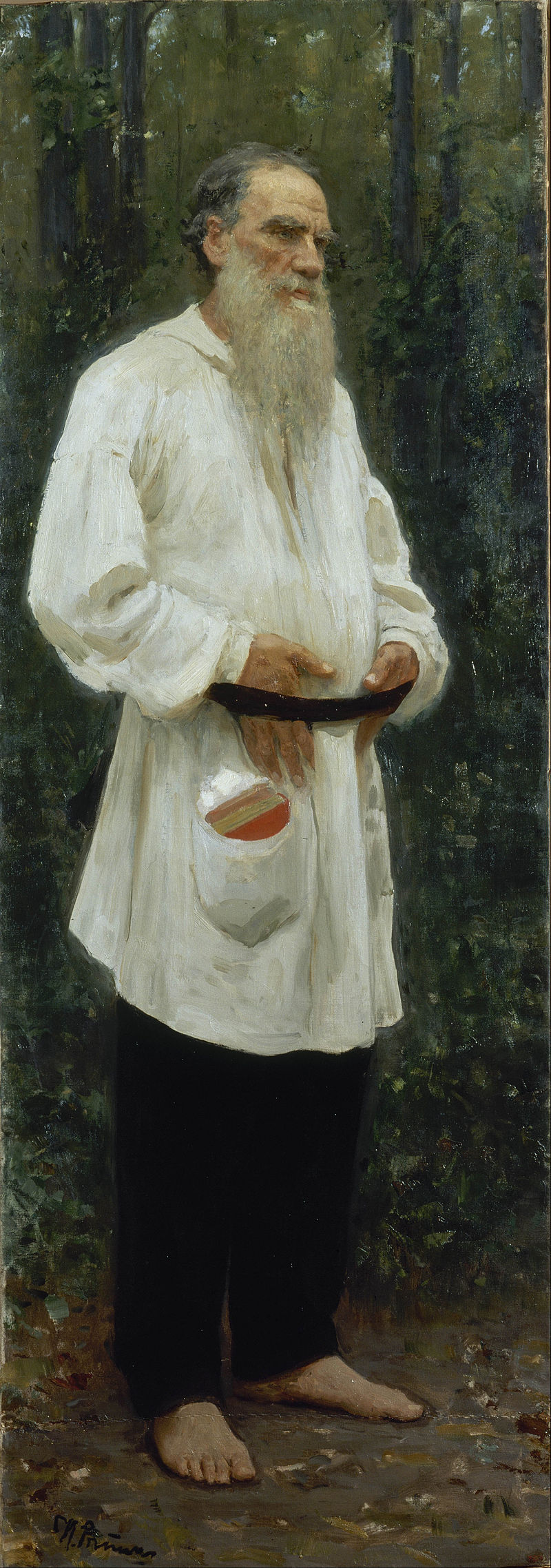Leo Tolstoy Archive
Written: 1887
Source: Original Text from Gutenberg.org
Transcription/Markup: Andy Carloff
Online Source: RevoltLib.com; 2021

I sunk into a sound sleep. When Alyoshka awoke me by punching me in the leg, and I opened my eyes, it was morning. It seemed even colder than it had been during the night. There was nothing to be seen but snow; but a strong dry wind still swept the powdery snow across the field, and especially under the hoofs of the horses, and the runners of the sledge. The sky on the right toward the east was of a deep purple color, but the bright reddish-orange rays of the sunrise kept growing more and more clearly defined in it; above our heads, between the hurrying white clouds, scarcely tinged as yet, gleamed the sickly blue of the sky; in the west the clouds were bright, light, and fluctuating. Everywhere around, as far as the eye could see, lay the snow, white and deep, in sharply defined strata. Everywhere could be seen gray hillocks where lay the fine, dry, powdery snow. Nothing was to be seen,—not even the shadow of a sledge, nor of a human being, nor of a beast. The outline and color of the driver's back, and of the horses, began to stand out clear and sharp against the white background. The rim of Ignashka's dark-blue cap, his collar, his hair, and even his boots, were white. The sledge was perfectly covered. The whole right side and the mane of the brown shaft-horse were plastered with snow. The legs of my off-horse were thick with it up to the knee, and the whole of the shaggy right flank* had the same sticky covering. The tassel leaped up and down in some sort of rhythm, the structure of which it would not be easy to represent; and the off-horse also kept to it in her gait: only by the gaunt belly rising and sinking, and by the hanging ears, could it be seen how tired she was.
Only one new object attracted the attention: this was a verst-post, from which the snow had been blown away, leaving it clear to the ground, and making a perfect mountain on one side; while the wind was still sweeping it across, and drifting it from one side to the other.
It was odd to me to think that we had gone the whole night without change of horses, not knowing for twelve hours where we were, and not coming to our destination, and yet not really missing the road. Our bells seemed to sound more cheerful than ever. Ignat buttoned his coat up, and began to shout again. Behind us snorted the horses, and jingled the bells, of the troïka that carried the little old man and the mentor; but the one who was asleep had wandered away from us somewhere on the steppe.
After going half a verst farther, we came upon the fresh, and as yet unobliterated, traces of a sledge and troïka; and occasionally drops of blood, caused by the whip on the horses' side, could be seen.
"That was Filipp. See, he's got in ahead of us," said Ignashka.
And here appears a little house with a sign, alone by itself, near the road, standing in the midst of the snow which covers it almost to the roof. Near the inn stands a troïka of gray horses, their hair rough with sweat, with wide-spread legs and drooping heads. At the door, the snow is shoveled away, and the shovel* is standing in it; but it still falls from the roof, and the roaring wind whirls the snow around.
Out from the door at the sound of our bells comes a big ruddy, redheaded driver, with a glass of wine in his hand, and shouts something. Ignashka turns to me, and asks permission to stop. Then for the first time I fairly see his face.